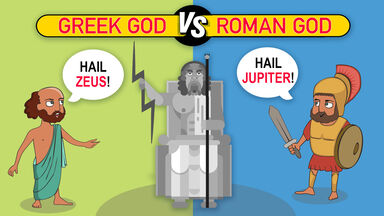Ancestor-worship is universal.
The Euhemerist theory mainly appeals to ancestor worship - a fact of undoubted importance in the history of religion, especially in China and in ancient Rome.
Nevertheless, traces of an earlier ancestor worship appear, e.g.
The Lar familiaris has been regarded' as the embodiment of all the family dead and his cult as a consummation of ancestor-worship, but a more probable explanation regards him as one of the Lares (q.v.; numina of the fields worshipped at the compita, the places where properties marched) who had special charge of the house or possibly of the household servants (familia); for it is significant that his worship was committed to the charge of the vilica.
All theories of religion which give prominence to ancestor worship and the cult of the dead are to a certain extent Euhemeristic. But as the sole explanation of the origin of the idea of gods it is not accepted by students of comparative religion.





